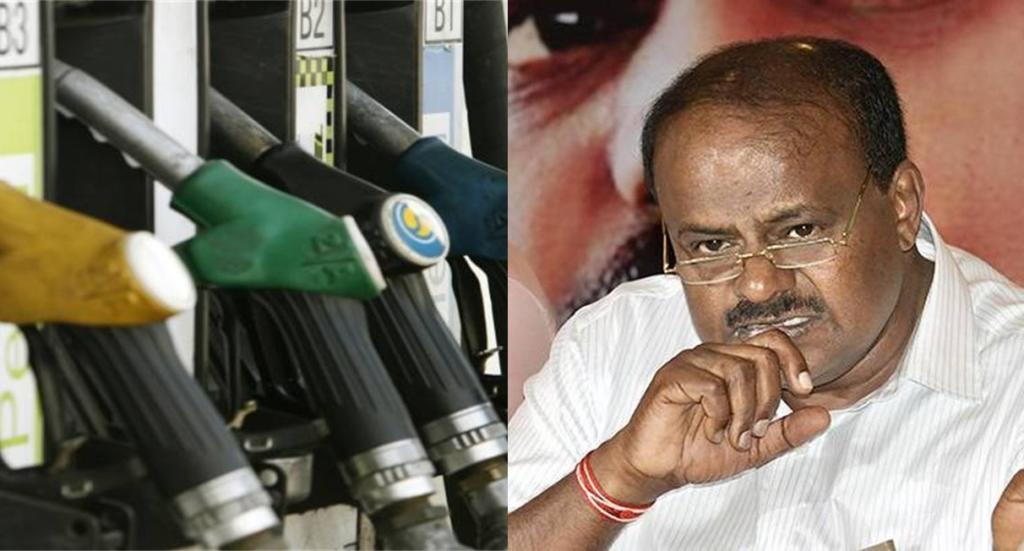The first thing ‘Mahagathbandhan’ government did in Karnataka was to increase taxes on petrol and diesel, to finance farm loan waivers of 44,000 crore rupees. Rahul Gandhi’s repeated attack on Modi government over rising fuel prices looked hypocritical as the alliance government in Karnataka had increased the taxes. The backlash from people forced the government to withdraw the decision. However, the Karnataka government has once again increased tax on petrol from 28.75 to 32 percent and on diesel 17.73 percent to 21 percent.
The states levy heavy taxes on petrol and diesel ranging from 10 percent to 40 percent but whenever prices go up, they blame central government for this. Central government has long been blamed by the media and opposition for hike in fuel prices. However, it is state government which benefits most from taxes on fuels. The state government levies Ad valorem tax (“according to value”), which means that this tax changes with a change in oil prices. Whenever the price increases, the tax also increases, and vice versa. For example, if the price of oil is Rs. 100 and the tax on that is 20 percent then the consumer has to pay Rs. 20 as tax, but when the price is Rs. 200 then the consumer has to pay Rs. 40.
Central government imposes fixed central excise duty on petrol and diesel, which is currently Rs 19.16 per litre on petrol and Rs 16.19 for diesel. Hence, there is no scope for the Modi government benefiting from a price surge because the tax by the central government is fixed, irrespective of the increase in prices. The rates were changed on October 4, 2017, when the government slashed the price by one and a half rupee and directed oil marketing companies to cut the margin by one rupee. Five states — Maharashtra, Gujarat, Madhya Pradesh, Himachal Pradesh, and Rajasthan reduced the VAT rates on petrol and diesel in October following the excise cut by the center.
The BJP ruled states slashed the price on petrol and diesel while the Congress governments increased the rate to deliver on populist promises. Karnataka government has already increased the tax rates to finance farm loan waiver. On the other hand, newly elected Congress governments in MP and Rajasthan also plan to increase tax rates on petrol and diesel to finance populist promises. So, Congress governments lure voters with populist promises and then tax them heavily to distribute ‘freebies’. Ultimately, capital expenditure goes down as the government has no money to invest in infrastructure and industrial development and these results in an economic slowdown.
Whenever the prices go up, the state governments benefit and they blame central government rather than cutting VAT rates. In the fiscal year 2017-18, states and center collected 5, 53,017 crore from petro-fuels which is almost half of total taxes collected by center or more than 3 percent of country’s GDP. The center collected 3, 43,862 crore rupees on petro-fuel taxes and state governments collected 2, 09,155 crore rupees. But as mandated by Fourteenth finance Commission, central government must share 42 percent of petro-fuel taxes with state governments thus center’s share goes down to 1,99,440 crore rupees while the state’s share reaches 3,53,577 crore rupees.
The question is if states are the prime beneficiary of petroleum taxes and state governments had fiscal space to lower the taxes then why the opposition and ‘National Media’ blame central government.
